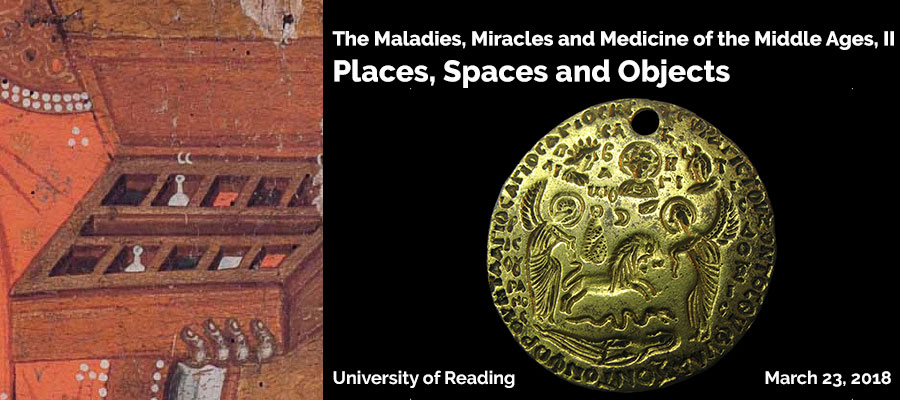The Maladies, Miracles and Medicine of the Middle Ages, II. Places, Spaces and Objects, University of Reading, March 23, 2018
As medievalists, we access our period through the written records, sites, and items that survive in order to form a deeper understanding of the period, one that goes beyond the page or the ruinous buildings that remain today. Using a wide range of sources is particularly valuable when considering the miraculous and the medicinal. After all, it is not just the writings, but the spaces, places and objects of both healthcare and of the holy which can inform and shape our research, and thus of understanding. Indeed, in many instances these two elements combine, as can be seen through the production of miracle cures, the monastic collections of medical treatises, and medieval hospitals and monastic infirmaries.
But, what can these sources tell us of miracles, of medicine, of maladies? How did the miraculous and the medicinal relate to and/or oppose each other? What can we learn of faith and the faithful, and of ill-health and healing? It is questions such as these which the second ‘Maladies, Miracles and Medicine’ conference considers by bringing together post-graduate and early-career researchers who work on all aspects of the healing and the holy. The conference welcomes papers on all aspects of this theme whether your interests lie in archaeology, art, literature, medicine and science, or miracles and theology (or a little bit of everything).
Particular themes to consider are:
- Pilgrims as ‘patients’ and miraculous medicine
- Hospitals, hospices and infirmaries as places of cure and places of piety
- Objects of healing and/or objects of faith
- Landscapes and locations of religion and remedy
- The written word as place, space, or object of cure or of faith
- Personal devotion and home-based healthcare
Proposals for twenty-minute papers fitting broadly into one of the above themes are welcomed from all post- graduate and early-career researchers.
